Piston Slap: Knockin' on Stoichiometry's Door?

TTAC Commentator dastanley writes:
Hi Sajeev,
I have a Piston Slap question: Most of the gasoline sold here in New Mexico is high altitude gas, meaning that Regular is 86 octane, Midgrade is 88, and Premium is 91. The owner’s manuals for my ’06 Corolla and my wife’s ’08 Hyundai Tucson (try not to be jealous :-) ), calls for 87 octane fuel. Am I OK to use Regular or should I take the manuals at face value and pay a dime more per gallon for Plus?
My understanding with OBD-II vehicles (1996 to present) is that the engine doesn’t “know” what type of gasoline is used unless the knock sensor registers a knock and sends a signal to the ECM to momentarily retard spark timing and richen the mixture beyond stoichiometric. If that doesn’t happen, then the engine runs normally with the timing and mixture programmed for Regular at open loop (real-time feedback) factory specs, with adjustments made for density altitude and load. Thus the engine won’t know or care what octane fuel is run.
So Sajeev, what do you and the Best and Brightest have to say? Thank You Sir.
Sajeev answers:
What do I say? I love it when people correctly answer their own question!
Many OBD-I cars also use knock sensors like this, but that’s not the point: run 86 octane and you’ll be problem free for life. Even worse, the more expensive 88 octane is pointless as the knock sensor doesn’t give a crap about higher octane. That’s the job of the fuel tables, which do not consider something with more “energy” than 87 octane. Unless it’s been reprogrammed, ‘natch.
So either you get the fuel tables tweaked for 88 octane (likely a fruitless exercise) or just enjoy 86 octane and the magic powers of Ye Olde Knock Sensor.
Go ahead Best and Brightest, find a case that proves me wrong!
[Image: Shutterstock user ThePowerPlant]
Send your queries to sajeev@thetruthaboutcars.com. Spare no details and ask for a speedy resolution if you’re in a hurry…but be realistic, and use your make/model specific forums instead of TTAC for more timely advice.

More by Sajeev Mehta
Latest Car Reviews
Read moreLatest Product Reviews
Read moreRecent Comments
- Mebgardner I test drove a 2023 2.5 Rav4 last year. I passed on it because it was a very noisy interior, and handled poorly on uneven pavement (filled potholes), which Tucson has many. Very little acoustic padding mean you talk loudly above 55 mph. The forums were also talking about how the roof leaks from not properly sealed roof rack holes, and door windows leaking into the lower door interior. I did not stick around to find out if all that was true. No talk about engine troubles though, this is new info to me.
- Dave Holzman '08 Civic (stick) that I bought used 1/31/12 with 35k on the clock. Now at 159k.It runs as nicely as it did when I bought it. I love the feel of the car. The most expensive replacement was the AC compressor, I think, but something to do with the AC that went at 80k and cost $1300 to replace. It's had more stuff replaced than I expected, but not enough to make me want to ditch a car that I truly enjoy driving.
- ToolGuy Let's review: I am a poor unsuccessful loser. Any car company which introduced an EV which I could afford would earn my contempt. Of course I would buy it, but I wouldn't respect them. 😉
- ToolGuy Correct answer is the one that isn't a Honda.
- 1995 SC Man it isn't even the weekend yet



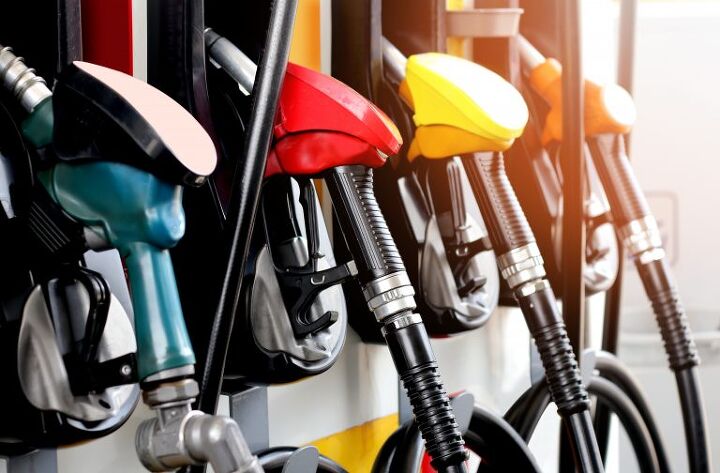













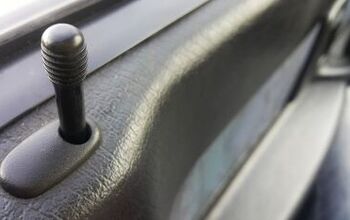

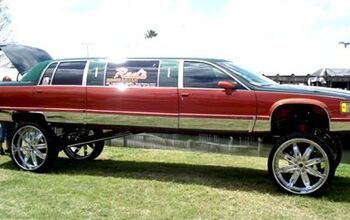

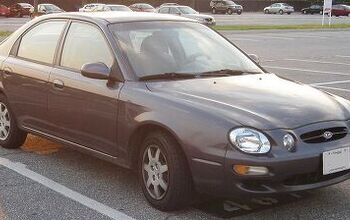


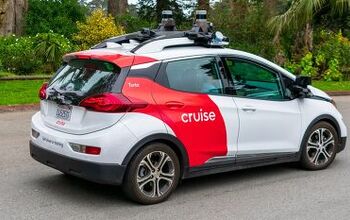









Comments
Join the conversation
Well again, there is considerable waffling in some of the owner's manuals these days. Ford substitutes for the usual statement that lower than 87 octane fuel is acceptable at high altitude to a "Watch out for lower octane fuel often sold at higher altitude!" warning. I understand from the Mustang forums that the 3.7L puts out abut 10 extra hp with premium. A manual that says "premium fuel will provide improved performance." Probably means that premium fuel will provide improved performance. Think about it: A middle-class automobile that requires premium is at a considerable competitive disadvantage to one that does not. With knock sensors its possible for the manufacturers to make cars that run on regular--but really prefer premium.
When I was out test driving with my mother for her '10 RX350 (which she ultimately purchased), she asked the salesidiot about fuel. "My Infiniti said 'premium fuel recommended' but I always put 87 octane in and had no issues in 14 years. Can I do the same thing with this car?" "Oh, ma'aam, the Lexus is a PREMIUM vehicle and requires PREMIUM fuel." Which prompted me to start questioning the salesmoron: "What is different about Lexus's tuning of this engine over the Camry and Highlander? Doesn't it share all the same parts? Isn't the power essentially the same, only different for packaging purposes?" Salesquack then states, "Oh, sir, you don't know how much Lexus engineered this vehicle." To which I replied, "You, sir, don't know squat about the product you are selling and I suggest you do a little reading before you hand out comments that make you look stupid." My mother told me that I was mean to him. Not the first time, and won't be the last time that I call someone out for trying to convince someone with a complete lack of facts. Result - she has had the car for 3 1/2 years and only uses 87 octane - mostly from Costco and Sams Club. No knocking or even perceived down on power.